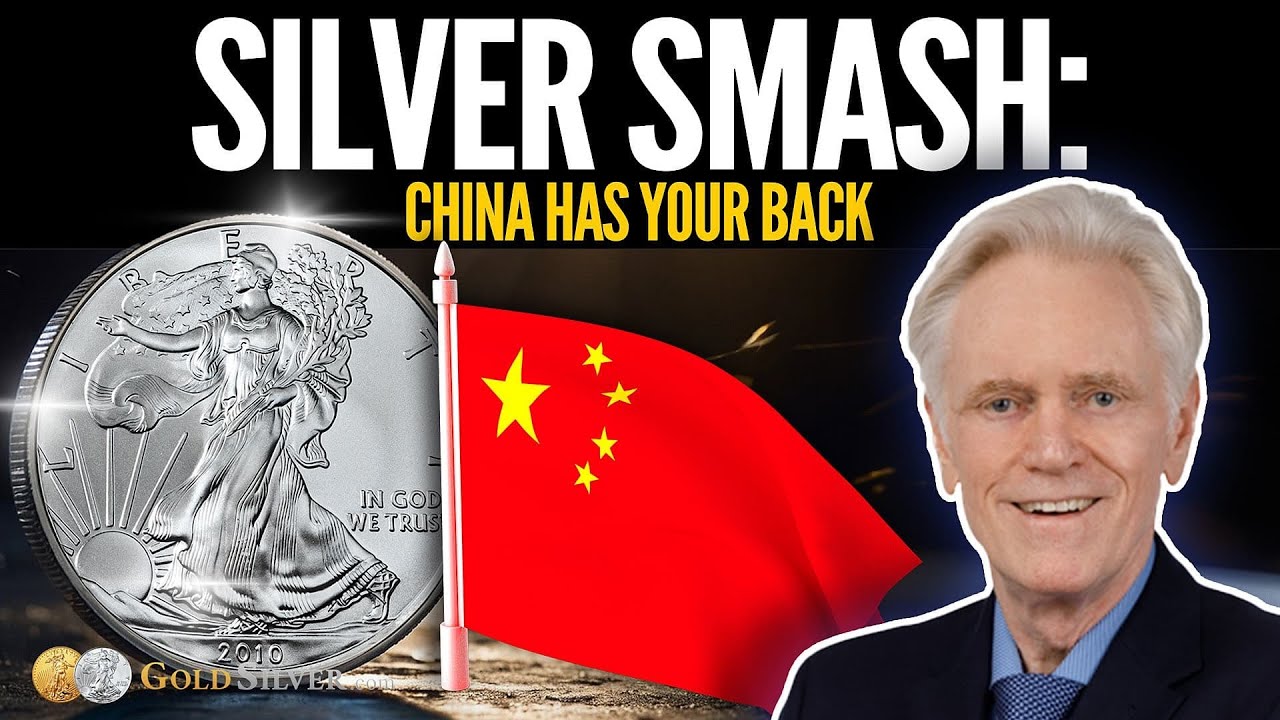GOLD, Japan & Inflation - MEGA Trends Shaping 2024 | Grant Williams
Summary
TLDRIn this special coverage from the Vancouver Resource Investment Conference, host Kai Hoff interviews Grant Williams, discussing global economic trends, market volatility, and the potential for gold. Williams emphasizes the importance of focusing on macroeconomic factors such as Japan's financial situation, inflation concerns, and the role of gold as a hedge against uncertainty. He suggests that the current environment calls for a strategic approach to investing, with an eye on the shifting dynamics of global markets and the enduring value of gold.
Takeaways
- 🌏 The global economy is experiencing a fragmented situation with some regions like China struggling, the U.S. economy being uncertain, Germany in a difficult position, and the UK facing issues, while some emerging markets like Mexico are doing well.
- 📉 Different economic strategies are needed for different parts of the world due to the varying economic conditions, adding complexity to the global financial landscape.
- 💹 The end of the cycle of dramatic interest rate hikes has led to increased uncertainty in financial markets, which is expected to result in more market volatility in the coming year.
- 🤔 Focusing on a reasonable return on investment, such as 5-10%, is suggested instead of chasing high-risk, high-reward investments, especially with the current ease of earning 5% with minimal risk.
- 💰 Understanding personal investment objectives and portfolio construction is crucial for navigating the complexities of the financial markets.
- 📊 The concept of 'inflation' varies as everyone has their own basket of goods and services that affect their personal inflation rate.
- 📉 Gold mining stocks can be volatile, and investors should have a realistic time horizon for owning them and not be swayed by short-term fluctuations.
- 🏦 Central banks have been buying more gold in the past two years than at any time since 1950, indicating a strategic move away from currency reserves to a more neutral reserve asset.
- 🗾 Japan's economy presents a unique opportunity due to corporate improvements, despite a high debt-to-GDP ratio and demographic challenges.
- 📈 The potential for normalization of interest rates in Japan could have significant global impacts, especially if it leads to repatriation of Japanese capital from overseas.
- 💼 The discussion highlights the importance of understanding macroeconomic trends to make informed microeconomic decisions, especially in the context of investing in gold and other commodities.
Q & A
What is the current state of the global economy according to the interview?
-The global economy is experiencing a patchwork of conditions, with some areas like China's economy struggling, the U.S. economy either booming or on the verge of collapse, Germany in a difficult state, the UK in trouble, and some emerging markets like Mexico doing well. This diversity in economic conditions is making the global economic situation more complex.
Why is the economic situation described as more complicated than before?
-The complexity arises from the fact that different regions are experiencing varied economic conditions, requiring distinct strategies for each part of the world. This is further complicated by the end of a short-lived but dramatic interest rate hike cycle, which has disrupted many people's belief systems about the financial world.
What is the impact of the changing economic conditions on investment strategies?
-Investors are likely to face more volatility and swings in markets and economic data, making the business of investing more difficult. It's suggested that investors should focus on their objectives and portfolio construction rather than trying to understand every factor, which can be overwhelming.
What is the current situation with inflation according to the interviewee?
-Despite some believing that inflation is under control, the interviewee suggests that it's not entirely resolved. Wage inflation, in particular, is a concern due to its stickiness, and there are indications that inflation could rise again, potentially requiring actions by the Federal Reserve.
Why is Japan a significant topic of discussion in the interview?
-Japan is highlighted as a market that has been overlooked but offers significant opportunities. The country has improved its corporate balance sheets and offers value investing opportunities with world-class companies trading at low valuations. Additionally, changes in monetary policy and the potential for capital inflows could significantly impact global markets.
What are the demographic challenges that Japan is facing?
-Japan is dealing with a shrinking population, which has been an issue for the past eight years. This demographic challenge needs to be addressed, although it is not seen as an immediate threat in the next couple of years.
How does the interviewee view the role of gold in the current economic climate?
-Gold is seen as a crucial asset for its liquidity, its role as a hedge against inflation and uncertainty, and its potential to maintain or increase purchasing power even during times of market instability. The interviewee suggests that gold's performance has been strong and expects it to continue outperforming.
What is the significance of central banks' gold purchases mentioned in the interview?
-Central banks are buying gold aggressively as a national security imperative, given the risks associated with holding reserves in foreign currencies that can be subject to political whims. This trend is expected to increase gold's status as a geopolitical asset and could be a tailwind for its price.
What are the implications of reshoring or onshoring production for inflation?
-Reshoring or onshoring production can lead to higher wages and costs due to the need for securing supply chains and potential trade policies. This could contribute to a higher inflation environment, which may be something that markets need to adjust to.
How does the interviewee suggest thinking about gold's value?
-The interviewee suggests looking at gold's purchasing power rather than its price. Even if the price of gold falls, if it can be exchanged for more units of other assets, its value as a reserve of capital has increased.
What is the potential impact on the U.S. if confidence in its treasury and central bank is lost?
-If confidence in the U.S. treasury and central bank is lost, it could lead to significant capital shifts away from the U.S., impacting the world economy and benefiting other countries that can absorb that capital.
Outlines

This section is available to paid users only. Please upgrade to access this part.
Upgrade NowMindmap

This section is available to paid users only. Please upgrade to access this part.
Upgrade NowKeywords

This section is available to paid users only. Please upgrade to access this part.
Upgrade NowHighlights

This section is available to paid users only. Please upgrade to access this part.
Upgrade NowTranscripts

This section is available to paid users only. Please upgrade to access this part.
Upgrade NowBrowse More Related Video

Silver Stackers: "China Has Your Back" - Mike Maloney

さらなる暴落はコレ次第。【9割知らない】【S&P500】【U6】

Oil and RATIOS, DECLINE Copper, OIL FV $87, GOLD Long TERM, Unemployment UP, OIL Tanker SET UP

U.S. ‘Debt Tsunami’ Will Force Fed to Negative Rates, Push Gold to $8,000 | Brien Lundin

How Options Flows Indicate Market Trends with Cem Karsan #1038

April 9: Market CHAOS – US-China Trade War Escalates | What About Gold & Silver?
5.0 / 5 (0 votes)